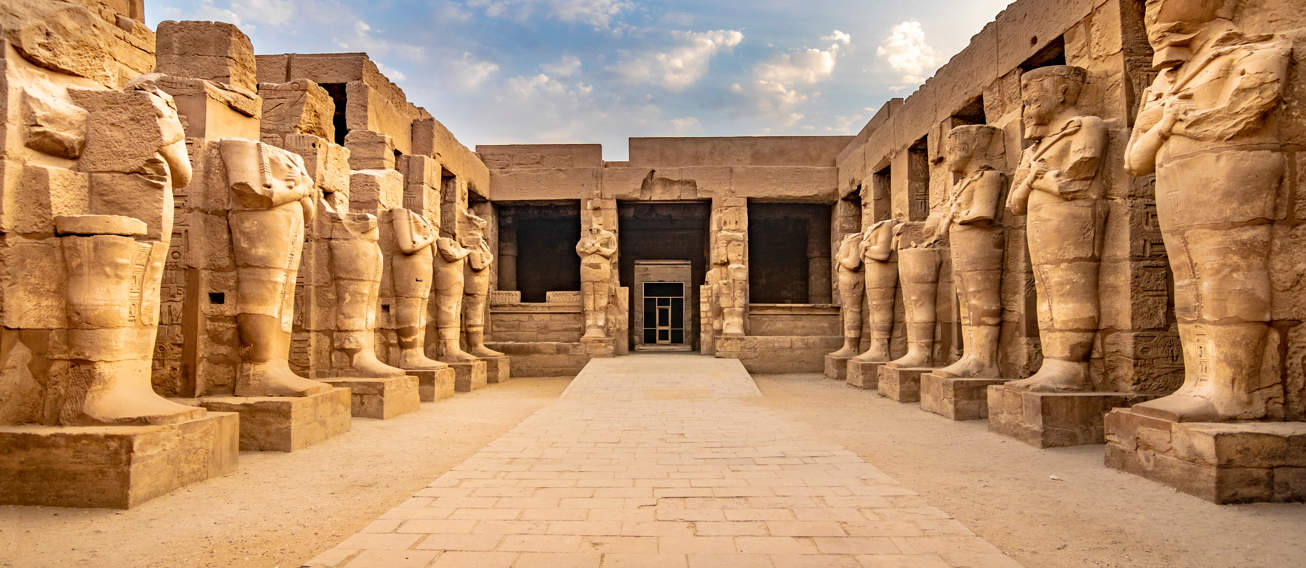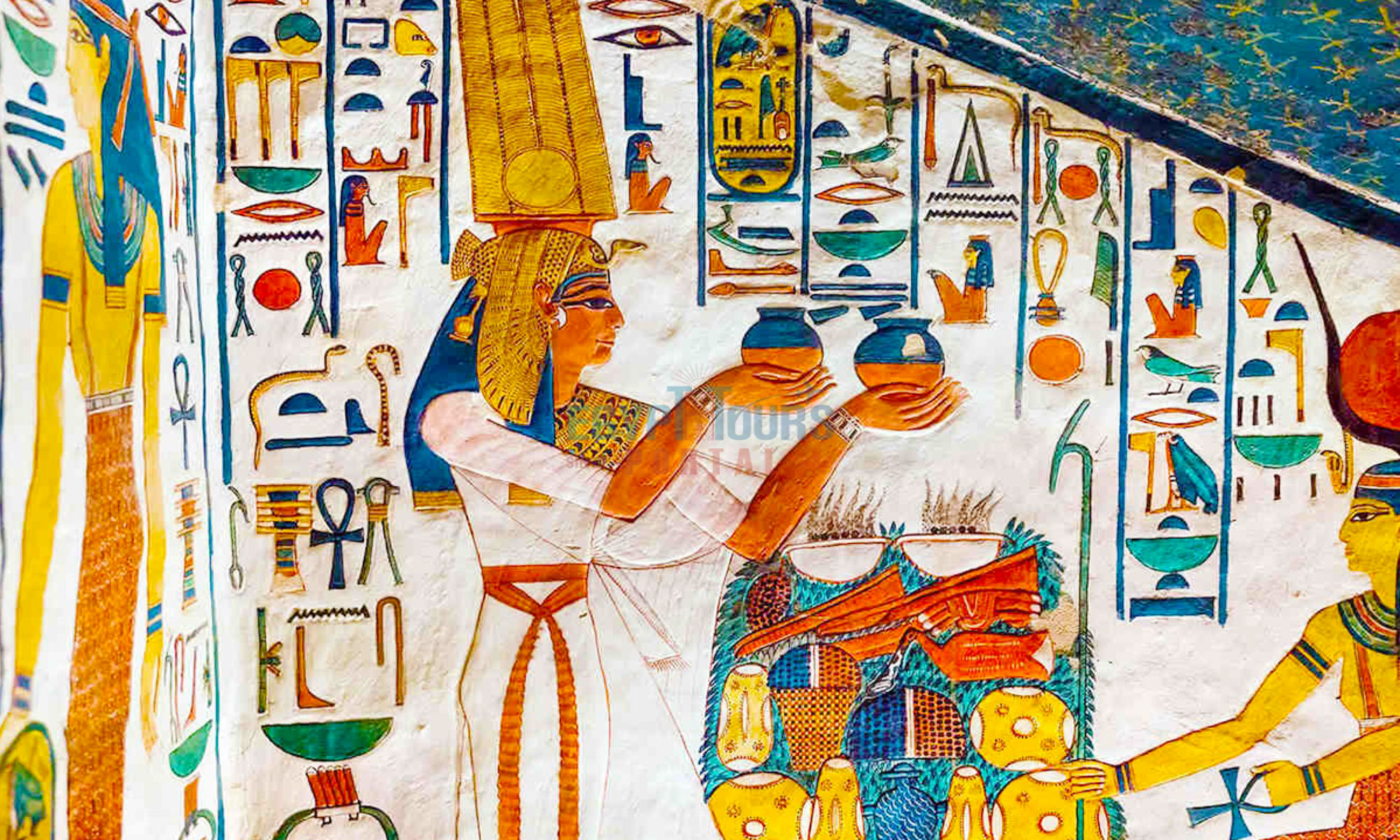Exploring Ancient Wonders: A Small Group Tour of Egypt for Indian Travellers

Introduction
Overview of Egypt as a Travel Destination
Egypt stands as a timeless beacon for travellers, famed for its rich tapestry of history, stunning landscapes, and vibrant culture. Imagine walking the sun-baked sands while peering up at the majestic pyramids, or setting sail on the serene Nile under a twilight sky. Egypt offers an alluring blend of ancient wonders and modern experiences, making it a destination that piques the interest of adventurers and history buffs alike.
Some highlights of this fascinating country include:
- Historical Sites: Home to some of the world’s most famous monuments, including temples, tombs, and the iconic Sphinx.
- Natural Beauty: From the shimmering Red Sea to the lush banks of the Nile, nature here is breathtaking.
- Vibrant Culture: Experience the warmth of its people, delicious cuisine, and bustling local markets.
Why Egyptian Wonders Attract Indian Travellers
For Indian travellers, Egypt offers a fusion of intrigue and adventure. The historical connections, particularly the shared significance of ancient civilisations, create a compelling reason to explore.
- Rich Heritage: Indian culture boasts a deep history, making Egyptian antiquities resonate on a personal level.
- Spiritual Adventures: Many Indians are drawn to the spiritual aspect, with sites like the Valley of the Kings echoing stories of life, death, and the afterlife.
- A Unique Experience: The thrill of exploring a land bursting with stories of pharaohs, gods, and ancient wisdom creates unforgettable memories.
With such an enchanting allure, it’s no wonder Egypt remains a top choice for adventurous Indian travellers. Are you ready to uncover the secrets of this magnificent land?

Ancient Egyptian History and Culture
Brief History of Ancient Egypt
Diving into the history of Ancient Egypt is like opening a captivating book filled with tales of kings, gods, and monumental achievements. Spanning thousands of years, from around 3100 BC with the unification of Upper and Lower Egypt to the conquest by Alexander the Great in 332 BC, Ancient Egypt flourished in ways that still astound people today.
This remarkable civilisation is renowned for:
- Pharaohs: The powerful rulers regarded as gods on earth, such as Tutankhamun and Ramses II, who shaped the destiny of the nation.
- Dynasties: A series of dynasties that saw the rise and fall of empires, showcasing political ingenuity and resilience.
- Cultural Evolution: The impressive advances in art, architecture, and writing, all central to maintaining a strong societal structure.
Cultural Highlights of Egyptian Civilization
The rich culture of Ancient Egypt is a treasure trove of innovations and expressions. Here are some cultural highlights that continue to inspire awe:
- Hieroglyphics: This unique writing system used symbols to convey meaning, leaving us a glimpse into their daily lives and beliefs.
- Art and Architecture: Monumental structures like temples and pyramids demonstrate unparalleled architectural skills that stood the test of time.
- Religion: Deeply rooted in their culture, the Egyptians worshipped a pantheon of gods and believed in an intricate afterlife, which influenced their burial practices.
As you prepare for your journey, let the echoes of this magnificent history guide you to the very heart of Ancient Egypt’s cultural richness.
Must-See Ancient Wonders in Egypt
The Great Pyramids of Giza
The Great Pyramids of Giza are nothing short of iconic. As one of the Seven Wonders of the Ancient World still standing, these monumental structures invoke a sense of wonder that is hard to describe. Dating back to around 2580–2560 BC, these pyramids were built as grand tombs for pharaohs, reflecting the Egyptians' beliefs about the afterlife.
- Cheops (Khufu) Pyramid: The largest and most famous, it originally stood at 146.6 meters, showcasing advanced engineering.
- Khafre Pyramid: Slightly smaller, it retains some of its smooth casing stones at the apex, giving a hint of its former glory.
- Menkaure Pyramid: The smallest of the trio, yet fascinating in its own right.
Walking among these giants will transport you to a time when pharaohs ruled, and each stone tells a story.
The Sphinx of Giza
Just a stone's throw from the pyramids lies the enigmatic Sphinx—its lion body and human head capturing the imagination.
- Symbol of Strength and Wisdom: The Sphinx is believed to represent Pharaoh Khafre, standing guard over the Giza Plateau.
- Mystery and Legend: Its purpose and origins remain subjects of speculation, with countless theories about its construction.
As you gaze into the Sphinx's timeless eyes, you'll feel connected to the intriguing myths that surround it.
The Valley of the Kings
A true treasure trove for archaeology enthusiasts, the Valley of the Kings is home to some of the most famous tombs of Egyptian pharaohs.
- Tomb of Tutankhamun: Discovered in 1922, this tomb remains one of the most famous due to its remarkable treasures.
- Rameses III’s Tomb: Showcases stunning wall paintings that narrate stories of battles and divinity.
Exploring this valley is like stepping into a real-life history book, where each tomb unveils layers of ancient beliefs and customs. As you traverse this sacred burial ground, you'll understand the Egyptians’ profound respect for their leaders and the elaborate practices surrounding death.
With these wonders on your itinerary, prepare to be awed by the incredible cultural heritage of Egypt!

Exploring Egyptian Temples and Tombs
Temple of Karnak
As you continue your journey through Egypt, don't miss the awe-inspiring Temple of Karnak, one of the largest temple complexes ever constructed. Located in Luxor, this temple is dedicated to the sun god Amun and spans over 1.5 square kilometres.
- Hypostyle Hall: This grand hall boasts 134 massive pillars, each intricately decorated and soaring high, making you feel like you're in a forest of stone.
- Sacred Lake: Stroll by this tranquil body of water, which was used for religious ceremonies and offers a perfect backdrop for stunning photographs.
Visiting Karnak is like stepping back into time, where you can almost hear the chants of ancient priests.
Temple of Luxor
Just a short distance away, the Temple of Luxor complements the grandeur of Karnak with its elegant style and rich history. Built primarily for the pharaoh Amenhotep III, this temple is known for its stunning colonnade and beautifully preserved reliefs.
- Obelisk of Ramses II: Originally standing tall, this colossal monument draws attention with its hieroglyphs that tell stories of triumph.
- Nightlight Illumination: Consider visiting this stunning temple in the evening when the soft lights illuminate its grandeur, creating a magical atmosphere.
The harmonious design and serene ambience of the Temple of Luxor invite you to explore and reflect.
Tomb of Tutankhamun
Finally, no exploration would be complete without a visit to the Tomb of Tutankhamun in the Valley of the Kings. This tomb, discovered in 1922 by Howard Carter, captivated the world with its opulence and the young pharaoh's incredible treasures.
- Golden Mask: The iconic burial mask made of gold is a symbol of Egypt's remarkable craftsmanship and has become a global icon.
- Intricate Artifacts: From chariots to jewellery, the artefacts showcase the luxurious life that Tutankhamun lived and his significance in Egyptian history.
Walking through this tomb, you can feel the rich history surrounding you, reminding you of the legacy left behind by this fascinating young ruler. With strikes of gold and detailed carvings, this experience leaves one in awe of the skill and devotion of the ancient Egyptians.
As you journey through these extraordinary temples and tombs, you'll find your spirit deeply enriched by the echoes of an age long past.

Nile River Cruise Experience
Benefits of Nile River Cruises
Embarking on a Nile River cruise is often considered one of the best ways to explore Egypt and for good reason! Picture yourself gliding along the world's longest river, surrounded by stunning landscapes and ancient treasures. Here are some compelling benefits of choosing a Nile cruise for your Egyptian adventure:
- Convenience: A cruise allows you to visit multiple sites, including Luxor and Aswan, without the hassle of constant travel arrangements.
- Scenic Views: Experience breathtaking landscapes that change throughout your journey, from lush riverbanks to barren deserts.
- Luxury and Comfort: Modern cruise ships often provide high-end amenities, including comfortable cabins, gourmet dining, and onboard entertainment.
- Cultural Immersion: Many cruises offer guided excursions to temples and tombs, providing you the chance to delve deeper into Egypt's rich history.
What to Expect During a Nile River Cruise
So, what can you expect during your Nile cruise experience? First, be prepared for a blend of relaxation and cultural exploration:
- Daily Excursions: Most itineraries include stops at incredible sites like the temples of Karnak and Luxor, as well as the Valley of the Kings.
- Onboard Activities: Enjoy relaxing afternoons by the pool, partake in Egyptian cooking classes, or attend cultural performances in the evening.
- Dining Experiences: Relish delicious Egyptian cuisine onboard, ranging from flavoursome mezze to aromatic main courses, all while enjoying panoramic views from your table.
As you float down the Nile, every moment offers an opportunity to absorb the changing scenery and rich history, making it a unique and unforgettable way to experience Egypt. Embrace the journey, and let the magic of the Nile transport you through time!
Egypt's Modern Attractions and Local Markets
Visiting Modern Egyptian Cities
As you transition from the ancient wonders of Egypt to its vibrant modern cities, you'll discover a delightful mix of tradition and contemporary life. Whether you're exploring the bustling streets of Cairo or the relaxed coastal vibe of Alexandria, each city has its own unique charm.
- Cairo: The capital is a hive of activity with landmarks such as the Cairo Tower and the Egyptian Museum, which houses an impressive collection of ancient antiquities. Don’t miss out on visiting the lively Zamalek district, known for its trendy cafes and art galleries.
- Alexandria: Rich in history, Alexandria offers a beautiful Mediterranean coastline combined with modern attractions. Take a stroll along the Corniche and visit the Alexandria Library, a modern marvel of architecture housing millions of books.
These cities enable you to connect with the modern Egyptian lifestyle while soaking in the remnants of their glorious past.
Exploring Local Markets and Bazaars
No visit to Egypt is complete without diving into its local markets and bazaars, where the atmosphere buzzes with life and colour.
- Khan El Khalili: This famous Cairo bazaar is a treasure trove filled with spices, textiles, and handcrafted souvenirs. Haggling is part of the experience, so don't be shy!
- Local Produce Markets: Visit a local market to immerse yourself in everyday life – the vibrant colours and delightful scents of fresh fruits, vegetables, and spices tell a story of Egyptian culinary traditions.
As you wander through these markets, you'll find yourself encountering the warm hospitality of the locals, making your shopping experience not just about acquiring items but also about building memories and connections. Embrace the lively atmosphere, and who knows, you might just come away with a unique artefact or two to remember your Egyptian adventure!
Egyptian Cuisine and Dining Experiences
Popular Egyptian Dishes to Try
When exploring the rich tapestry of Egyptian culture, you'll quickly notice that the culinary scene is as diverse and vibrant as its history. Egyptian cuisine is a delightful fusion of flavours, spices, and traditions that reflect the country's long-standing heritage. Here are some must-try dishes:
- Koshari: Often hailed as Egypt's national dish, this hearty mix of rice, lentils, pasta, and spicy tomato sauce is a filling meal that's loved by locals.
- Fattah: A festive dish typically served at celebrations, Fattah comprises layers of rice, toasted bread, and tender meat, all topped with a rich garlic and vinegar sauce.
- Ta'ameya: This delicious falafel made from fava beans is a popular snack, best enjoyed hot with tahini sauce and a side of fresh salad.
- Basbousa: A sweet semolina cake soaked in sugar syrup, Basbousa is the perfect way to satisfy your sweet tooth!
Dining Etiquette and Cultural Practices
As you indulge in these culinary delights, it's essential to be mindful of local dining etiquette to enhance your experience:
- Using Your Right Hand: Traditionally, Egyptians eat with their right hand, as the left is considered impolite for eating.
- Sharing Food: Meals are often communal, and sharing dishes is a sign of hospitality and friendship. Don’t hesitate to pass your plate!
- Sitting and Eating: When dining at someone’s home, waiting for the host to begin eating is polite. It is also customary to finish everything on your plate as a sign of appreciation.
By immersing yourself in the local dining customs and indulging in traditional dishes, you'll not only satisfy your taste buds but also create lasting memories of Egyptian hospitality and warmth. So, get ready to explore mouthwatering flavours that will undoubtedly stay with you long after your journey!
Planning Your Small Group Tour of Egypt
Choosing the Right Tour Operator
When planning a small group tour of Egypt, selecting the right tour operator is crucial to ensuring a memorable experience. With many options available, consider these factors to help make your choice:
- Reputation: Research tour companies through reviews and ratings. Look for operators who specialize in Egypt and have a track record of positive guest experiences.
- Itinerary Flexibility: A great tour operator will provide a well-structured itinerary while allowing flexibility for additional activities or rest.
- Local Guides: Ensure the operator employs knowledgeable and certified local guides who can bring history to life and provide insights that enrich your journey.
- Group Size: Smaller group sizes (typically 10-15 people) allow for a more intimate experience and the opportunity to connect with fellow travellers.
Remember, the right operator can make all the difference in navigating Egypt's rich history and vibrant culture.
Practical Tips for Indian Travellers in Egypt
As you embark on your Egyptian adventure, keep these practical tips in mind to enhance your journey:
- Visa Requirements: Ensure you have a valid e-Visa before your arrival. It's a straightforward process that can be done online.
- Currency and Payments: The local currency is the Egyptian Pound (EGP). While credit cards are widely accepted, having cash on hand for local markets and small vendors can be handy.
- Cultural Sensitivity: Dress modestly, especially when visiting religious sites. This shows respect for local customs and traditions.
- Hydration is Key: The climate can be hot, so always carry a water bottle and stay hydrated, especially during excursions.
By planning carefully and being mindful of local customs, your small group tour of Egypt will be both enriching and enjoyable. Get ready to embark on the adventure of a lifetime, filled with history, culture, and unforgettable experiences!

Conclusion and Reflection
Recap of Ancient Wonders Explored
As we conclude our journey through the awe-inspiring land of Egypt, let’s take a moment to reflect on the ancient wonders we explored. From the stunning Great Pyramids of Giza, standing as testaments to incredible engineering and the mysterious Sphinx guarding them, to the Sacred Valley of the Kings, where the secrets of pharaohs lie. The illustrious Temple of Karnak and the enchanting Temple of Luxor further amplify the grandeur of an ancient civilisation that continues to captivate hearts around the world.
Each site offers a glimpse into a world rich with history, artistry, and culture—stirring emotions that connect you to a past that’s both enigmatic and magnificent.
Personal Insights and Recommendations for Indian Travellers
For Indian travellers embarking on this incredible journey, here are some personal insights and recommendations to enhance your experience:
- Be Open-Minded: Embrace the unique blend of history, culture, and modernity. Engaging with locals can offer unexpected heartwarming moments.
- Plan Your Itinerary Wisely: Make sure to balance sightseeing with downtime, allowing yourself to fully soak in each experience.
- Pack Wisely: Lightweight clothing is essential for the warm climate, but don't forget to include a few modest options for temple visits.
- Engage in the Local Culture: Whether it's trying traditional dishes or learning a few phrases in Arabic, these small gestures can lead to meaningful interactions.
By keeping these tips in mind, you’ll create rich memories and a deeper appreciation for the wonders of Egypt. Get ready to share your very own stories of adventure that celebrate this magnificent land!
